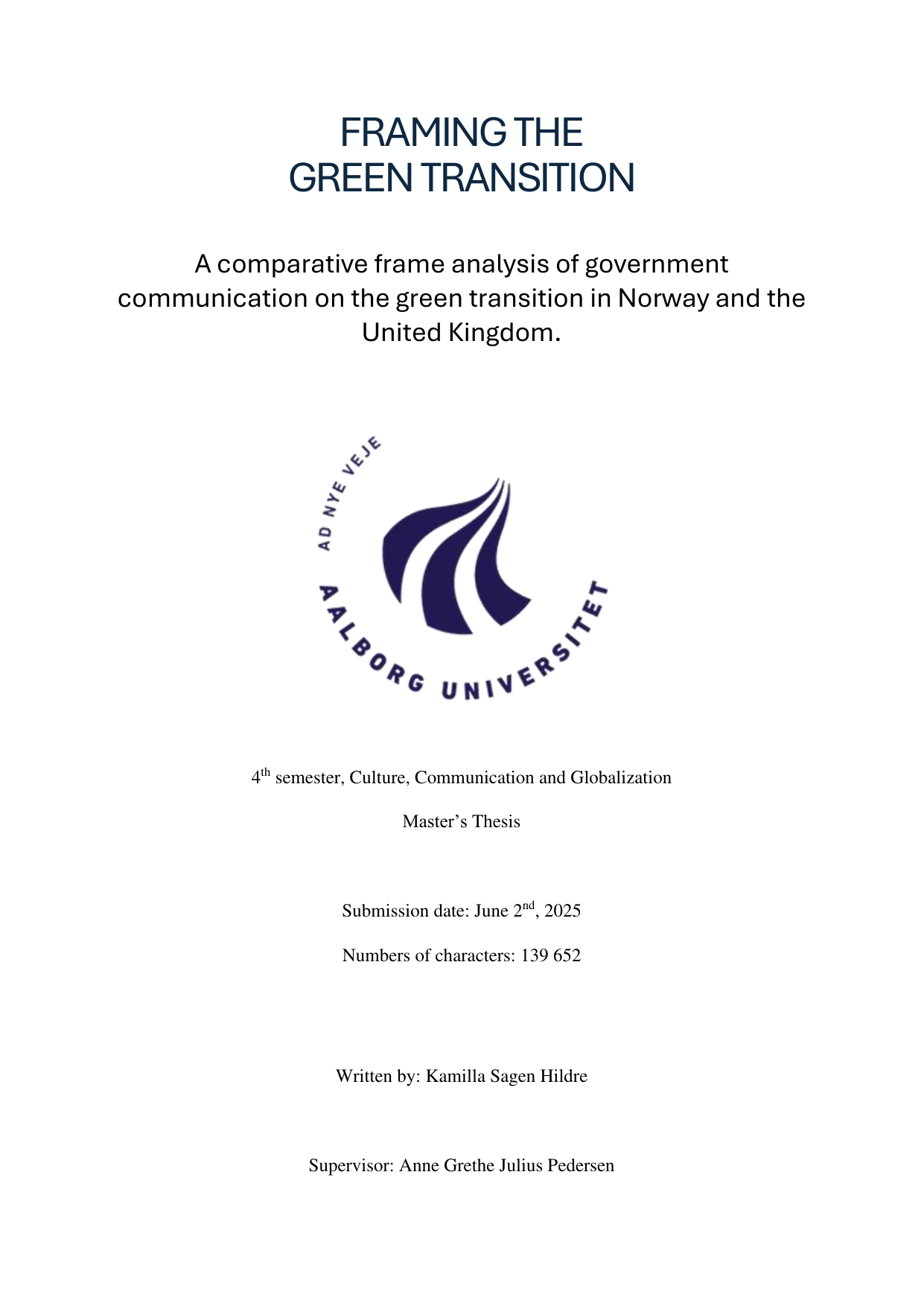
Framing the Green Transition: A comparative frame analysis of government communication on the green transition in Norway and the UK
Translated title
Framing the green transition
Author
Term
4. term
Publication year
2025
Submitted on
2025-06-02
Pages
58
Abstract
As public engagement with climate action becomes increasingly vital, the role of government communication in shaping public understanding of environmental efforts is gaining attention. This thesis studies how state-level institutions in Norway and the United Kingdom frame the green transition, and whether these communicative strategies suggest a risk of greenwashing. While greenwashing has traditionally been associated with the private sector, particularly in marketing contexts, this study applies the concept to public institutions to assess the transparency, credibility, and framing of governmental climate narratives. The theoretical foundation draws on framing theory as well as greenwashing literature, including the Seven Sins of Greenwashing and recent regulatory developments such as the EU directive on green claims. Trust and democratic responsibility serve as an underlying basis, guiding the analysis of how state institutions frame themselves as credible and responsible actors in the green transition. A qualitative comparative analysis of seven press releases, three from Norway and four from the UK, serves as the empirical foundation for the study of how different frames are used to present the green transition through national and global climate actions. The UK government emphasizes centralized leadership, performance metrics and international status, while Norway highlights local initiatives, collaborative governance and technological development. Despite these differences, both countries present the green transition as an achievable and positive societal transformation, closely aligned with values such as innovation, job creation, and economic growth. However, some communicative strategies risk oversimplifying complex policy challenges or overstating national progress. Although none of the press releases analyzed constitute greenwashing in a legal or regulatory sense, the findings suggest that certain framing practices may unintentionally mislead important dimensions of climate policy. These include the use of vague language, selective emphasis on achievement, and forward-looking claims without sufficient detail. From a regulatory perspective, such practices would most likely require greater transparency and balance if used in commercial contexts. By analyzing these framing choices, the thesis underscores how public institutions, particularly governments, need to uphold the same standards of transparency and accountability as expected of private actors. It is crucial to evaluate public climate communication with the same critical lens applied to corporate messaging to maintain democratic legitimacy.
Keywords
Framing ; comparative ; communication ; politics ; trust ; greenwashing ; climate ; enviorment
Documents
